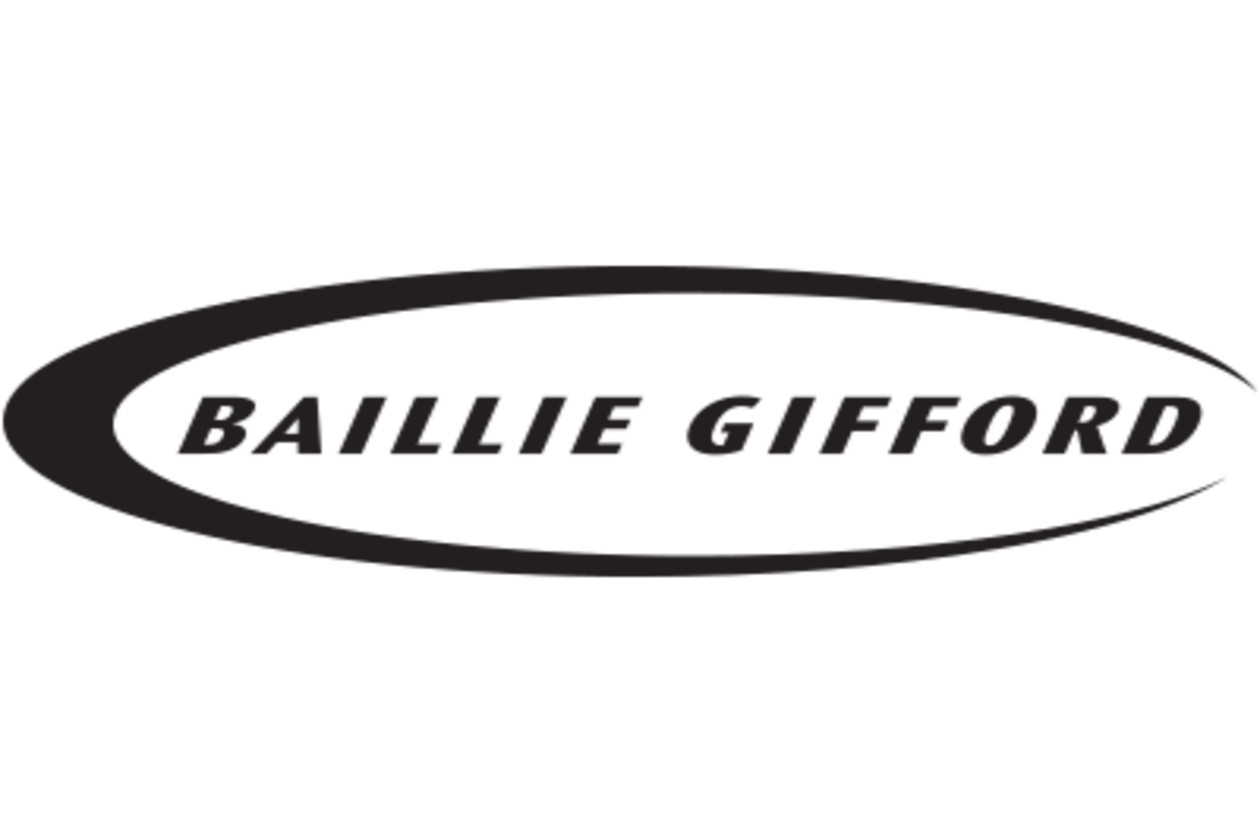The managers invest in companies they think will grow faster than the average company over the long term
Gary Robinson and Kirsty Gibson are prepared to hold onto companies for long periods to generate long-term capital growth
The trust utilises a significant amount of their allowance to invest in private companies
How it fits in a portfolio
The Baillie Gifford US Growth Trust invests in US companies that the managers think have the potential to grow faster than the average company. They then try to hold onto them for long periods of time, to generate long-term capital growth. These companies can be public or private.
We think this trust could work well as part of an adventurous investment portfolio and could diversify portfolios which have little invested in the US. Investors in investment trusts should be aware that they can trade at a discount or premium to net asset value (NAV).
The share price of an investment trust can differ from the net asset value (NAV). If the current share price is above the NAV, the investment trust is said to be trading at a premium, i.e. it costs more to buy the shares than the underlying investments are worth. When the share price is below the NAV, this is known as trading at a discount.
Manager
Gary Robinson joined Baillie Gifford in 2003 and has experience of working in their Japanese, UK and European equity teams prior to joining the US equity team. Kirsty Gibson joined Baillie Gifford after graduating in 2012 and has been a co-manager of the trust since March 2021.
Robinson and Gibson are co-managers of a few other strategies at Baillie Gifford, including the Baillie Gifford American fund. These are run in a similar way though and invest in some of the same companies, so we think they are able to devote enough time to each strategy.
Process
Robinson and Gibson invest in US companies they think have the potential to grow faster than the average company, and then try to hold onto them for long periods of time. The managers think this will maximise their chances of achieving capital growth for investors, as over the long term strong business models and cultural strengths become the drivers of valuations.
The trust consists of both companies which are publicly traded on the stock market, and private companies. The managers think companies in the US are choosing to remain private for longer, and as such believe being able to invest in public and private companies offers them a wider opportunity. Investors should be aware that private, or unquoted, companies carry more risk than public ones. Investing in smaller companies is also a higher-risk approach.
The trust can invest in a maximum of 90 companies, typically at least 30 of these are publicly listed companies. Robinson and Gibson can also invest up to 50% of the trust’s assets (at the time of investment) in unlisted companies. At the end of the trust’s financial year in May, it had 24 unlisted investments, making up 34.1% of the trust’s assets. This is a marginal decrease from the 25 unlisted investments one year earlier. Currently, the trust invests in 70 companies, but it does have the flexibility to operate a concentrated approach and invest in derivatives, which if used adds risk.
The trust’s largest unlisted investment, accounting for 7.6% of its assets at the end of May is Space Exploration Technologies. The business designs, manufactures and launches advanced rockets and spacecraft. In the trust’s last financial year, the managers invested in one new unlisted company, Human Interest who help businesses offer retirement plans to their employees. The team also believes that the Initial public offering (IPO) market is starting to show signs of life again after a period of companies remaining private for longer. In the trust’s latest financial year, cosmetic company Oddity moved from private to public.
The trust also borrows money to invest with the intention of increasing returns (sometimes known as gearing). This could magnify losses in a falling market and increases risk. At the end of the trust’s financial year gearing stood at 5% a marginal decrease from 6% the previous year.
Over the latest financial year Robinson and Gibson made a number of changes to the trust. Advances in new medicines designed to aid weight-loss gave the team an opportunity to buy healthcare companies Insulet and Inspire Medical Systems. Insulet produces pumps for treating diabetes and Inspire targets sleep apnoea. Their share prices weakened as many expected the weight loss drugs to lower the demand however, the team believe that this is unlikely and saw it as an opportunity to buy both at an attractive price.
The team also added medical company Guardant Health, consumer company YETI, social media management company Sprout Social and safety technology company Samsara.
On the other hand, the team also made a number of sales. US communication software company Twilio was sold after a period of poor performance. The company’s founder also left the business. Video conferencing company Zoom was also sold due to the strong amount of competition. Other sales include social media company Snap, educational technology company Chegg and healthcare company Illumina.
Culture
Baillie Gifford is an independent private partnership founded in 1908. It's owned by partners who work full time at the firm. Gary Robinson, one of the trust’s co-managers is a partner at the firm. This ownership structure means senior managers have a vested interest in the company, and its funds and trusts under management, performing well. We think this has helped cultivate a culture with a long-term focus, where investors' interests are at the centre of decision making. We also like that managers are incentivised in a way that aligns their interests with those of long-term investors and should retain talented managers.
ESG Integration
All of Baillie Gifford’s funds are run with a long-term investment horizon in mind – they see themselves as long-term owners of a business, not short-term renters. So, assessing whether society will support, or at the very least, tolerate, the business model over the long term, and whether management will act as good stewards of shareholders’ capital is an important part of the investment process.
Dedicated ESG analysts sit with and report into their respective investment teams, and the firm’s ESG efforts are supported by a dedicated Climate team, an ESG Services team (responsible for voting operations and ESG data) and an ESG Client team (responsible for ESG-related client communications). Individual investment teams are responsible for voting and engagement for the companies they invest in. Investment in controversial weapons is prohibited across the firm.
The firm reports all its voting decisions and provides rationale in situations where it voted against management or abstained, in a detailed quarterly voting report. There is also a quarterly engagement report which details the companies engaged with, and the topic discussed, and further engagement case studies are available on the website. All this information is brought together in the firm’s annual Stewardship Activities report.
Although ESG is taken into consideration throughout the team’s investment process this trust is not invested to a sustainable mandate.
Cost
The trust's ongoing annual charge in the year to May 2024 was 0.70% a marginal increase from 0.69% the previous year. Investors should refer to the latest annual reports and accounts and Key Information Document for details of the risks and charging structure.
If held in a SIPP or ISA, the HL platform charge of 0.45% (capped at £200 per annum for a SIPP and £45 for an ISA) per annum also applies. Our platform charge doesn’t apply if held in a Fund and Share Account or in an HL Junior ISA.
As investment trusts trade like shares, both a buy and sell instruction will be subject to the HL share dealing charges.
Performance
Since the trust launched in March 2018 to the end of August 2024, it's grown by 87.98%*, underperforming the 100.45% gain for the average trust in the AIC North America sector. In this time the trust’s Net Asset Value (NAV) has risen 126.51%. Past performance is not a guide to future returns.
Over the trust’s financial year to the end of May the trust share price returned 32.87% compared to 23.89% for the average trust in the AIC North America Sector. However, the trust’s NAV returned 15.91%.
The trust has had periods of strong performance as well as periods where the managers’ growth-focused investment style has fallen out of favour with investors. This was the case in 2022 where interest rates rose to combat rising inflation. The result is investors focusing more on nearer term growth and being less willing to pay up for companies with growth and profits further in the future
Throughout 2023 and 2024 there has been a pivot to investors wanting both growth and profitability. This has led to this funds style becoming more in-favour however, given the trust focuses on more early-stage growth companies some of the companies they invest in are not yet in profit. The number of companies that generate positive cashflows has increased though. At the end of March 67% of the portfolio was generating positive cashflow, up from 48% the previous year.
Over the trust’s financial year semi-conductor company Nvidia was the biggest contributor to performance. Revenue grew 125% off the back of companies increasing their spending on AI. Private aerospace company SpaceX also contributed to returns as well as e-commerce business Amazon.
The managers also realise some stocks have not performed as well as they would have liked. Private freight company Convoy was the largest detractor after the company shut down due to a massive freight recession. Other private companies also had a tough year including Indigo Agriculture and Solugen.
You should consider annual performance in the context of a longer time horizon and not in isolation. The manager’s long term time horizon and the trust’s concentrated nature and exposure to private companies means performance can be volatile and look very different to the benchmark.
Remember all investments fall as well as rise in value, so investors could get back less than they invest. At the time of writing, the trust currently trades on a discount of 12.43% however, since inception the trust has on average traded at a 4.98% discount.
Annual percentage growth
31/08/2019 To 31/08/2020 | 31/08/2020 To 31/08/2021 | 31/08/2021 To 31/08/2022 | 31/08/2022 To 31/08/2023 | 31/08/2023 To 31/08/2024 | |
|---|---|---|---|---|---|
Baillie Gifford US Growth Trust | 67.01% | 41.56% | -51.16% | -7.62% | 25.00% |
AIC Investment Trust - North America | 1.31% | 41.78% | -2.84% | -1.25% | 17.48% |


